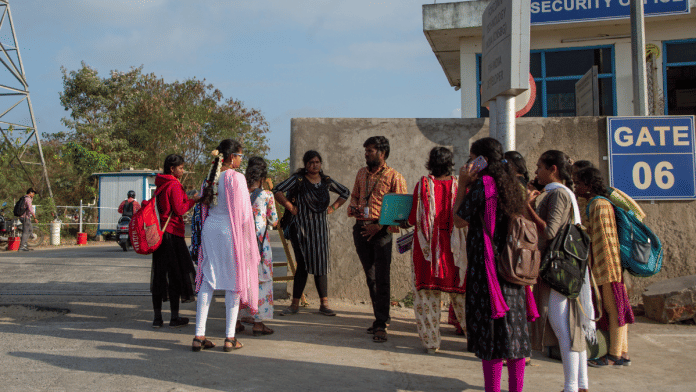New Delhi: The Ministry of Labour and Employment has acknowledged a Reuters investigation that highlights discriminatory hiring practices at the Foxconn factory, which manufactures Apple iPhones in Sriperumbudur, Tamil Nadu, and is seeking a response from the Tamil Nadu government’s Labour Department.
“Section 5 of the Equal Remuneration Act, 1976, clearly stipulates that no discrimination is to be made while recruiting men and women workers,” reads a ministry statement. “As the state government is the appropriate authority, a report has been sought.”
The Reuters investigation reveals ongoing, dubious hiring practices at Sriperumbudur, where Foxconn explicitly does not hire married women, with job advertisements targeted solely at unmarried women.
Employees and recruiters to whom Reuters spoke said that this is due to “cultural issues” and “societal pressures” faced by women once they are married.
“Risk factors increase when you hire married women,” a former human-resources executive at Foxconn told Reuters.
About 72 percent of the workforce at the Foxconn factory — the first of its kind in India — is female. At the time of its inception in 2017, it was hailed as a big nationalist victory for India and for its women, many of whom were thrilled at the prospect of working for a tech multinational.
The Reuters investigation is a blow to this perception, particularly of Foxconn being a path to women’s empowerment.
“For some Indian women, a job building iPhones is a ticket out of extreme poverty. The Foxconn positions offer food and accommodation and a monthly paycheck of about $200 (over rs 16,000), roughly in line with India’s per capita GDP,” said the Reuters report.
Both Foxconn and Apple have denied the charges. Foxconn has previously come in the line of fire for unethical labour practices. In 2021, hundreds of Foxconn employees took to the streets of Tamil Nadu after food poisoning among nearly 250 women employees, with over 100 hospitalised.
If taken forward, the investigation could lead to legal trouble for both Apple and Foxconn, given that there is a legal precedent in India. Further, both companies plan on growing in India –– given its potential as an alternative to China –– with plans to expand into AirPod production and chipmaking.
(Edited by Madhurita Goswami)
Also read: India has a workplace creche problem. See how Karnataka, Assam, Odisha are taking action






